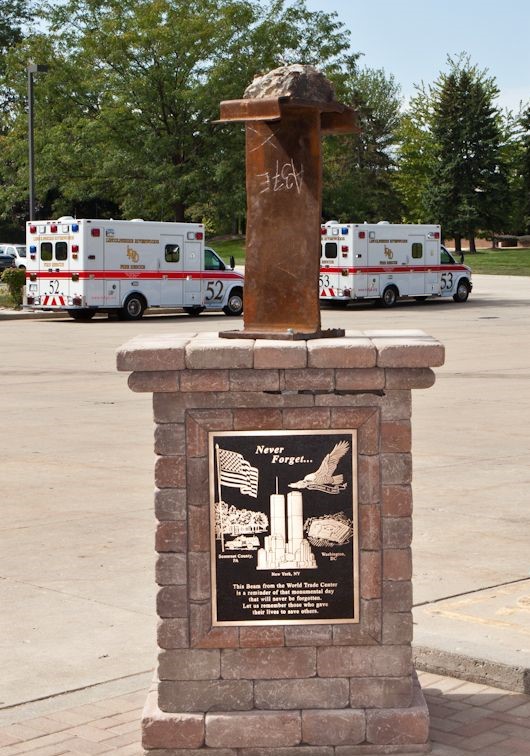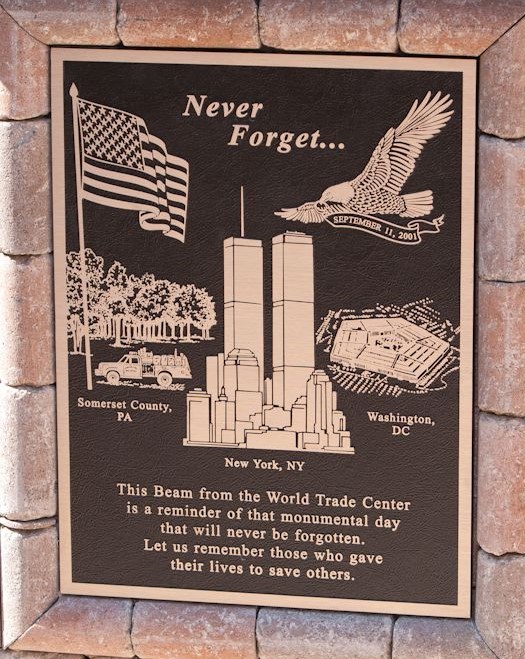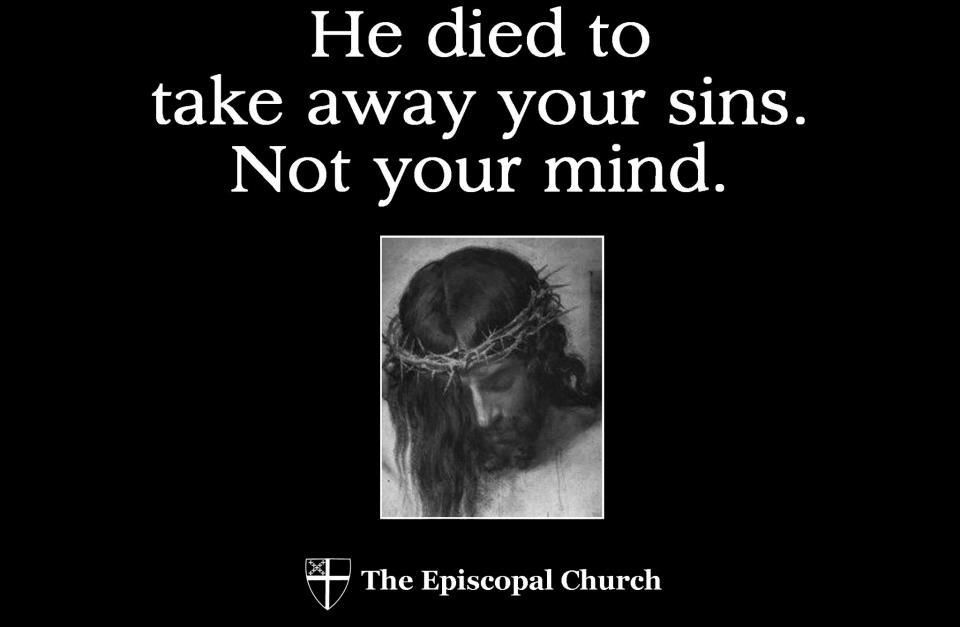A number of years ago, the Episcopal Ad Project put out a poster, a classic picture of Jesus that said, “He died to take away your sins, not your mind.” Over the past several months, I have recalled the sentiment of this poster multiple times as I have strived the navigate the social waters of the Covid-19 pandemic, the availability of vaccines that are proven to be effective, and the emergence of new virus variants that have had the opportunity to mutate within populations with a low vaccination rate.
My friends in the medical field across the country include nurses, hospice staff, respiratory therapists, first responders, laboratory technicians, clinicians, and physicians. To a person, they are tired and frustrated. I try to support them in the ways that I can by providing a non-judgmental and supportive listening ear for as long as they need it. Many of them are suffering from acute compassion fatigue and are finding it increasingly difficult to feel empathy for those who have chosen not to take steps in preventing the spread of Covid-19 and who have consequently contracted the virus. Patience is a limited natural resource even in the most stalwart of human beings. The impatience and frustration of professional healthcare workers who are enduring these times is understandable. In spite of their physical and emotional fatigue, society’s healers are continuing to do what they can – ifthey can – to save the lives of people from the devastation of a global pandemic.
Faith and science are two ways of encountering the environment in which we live. In the historical development of the Episcopal Church, the Episcopal tradition has never seen faith as being at odds with science. In fact, even going as far back as the sixteenth century Church of England, theologian Richard Hooker defended of the role of reason as one of three legs of the three-legged stool supporting the emerging Anglican faith – scripture, reason, and tradition remain foundational to the Anglican/Episcopal worldview and subsequently to the practice of our faith.
Recently, the Archbishop of Canterbury, Justin Welby, told an international gathering of faith leaders that collaborative steps to meet the challenges of the world’s current climate crisis would benefit from the relationship between science and faith. He made his comments in the first of a series of online meetings being held in advance of the UN’s COP26 climate change conference in Glasgow later this year. Archbishop Justin said that “the relationship between science and faith presents us with a very real and a powerful route to lasting, major change. Our global reach, our commitment to local communities and our hope combined with the knowledge and expertise of science can forge a powerful alliance.”
In an expression linking faith and science, The Most Rev. Michael Curry who is the Presiding Bishop of the Episcopal Church, created a video of receiving his first Covid-19 vaccination earlier this year. “I thank God for all of the people who have made the COVID vaccines possible and available,” he says in the video, “I’m thankful to have received my first shot – one more to go!” Bishop Curry has since been fully vaccinated and has encouraged all Episcopalians to do the same. The Office of Government Relations of the Episcopal Church created a Covid-19 Tool Kit with ideas of how to encourage people to be vaccinated.
The Covid-19 Toolkit shares that In 2019 (before the pandemic), the Executive Council of the Episcopal Church passed a resolution stating, “That The Episcopal Church has long maintained that we are guided by faith and reason, and that scientific evidence helps us to better understand God’s creation, our place in it, and ways to alleviate suffering and pain.”
Additional language from that resolution offers excellent guidance for taking vaccines, including this statement, “The proper and responsible use of vaccines is a duty not only to our own selves and families but to our communities. Choosing to not vaccinate, when it is medically safe, threatens the lives of others.” A further statement in the resolution gives no wiggle room for non-compliance based on religious objections, “The Executive Council recognizes no claim of theological or religious exemption from vaccination for our members and reiterates the spirit of General Convention policies that Episcopalians should seek the counsel of experienced medical professionals, scientific research, and epidemiological evidence.”
Washington Governor Jay Inslee updated and extended two emergency proclamations last week that expand the vaccine requirement and the statewide face covering requirement. As of August 16, 2021 in our state, at least 69.3 percent of people 12 years of age and older and 59.1 percent of the total population have initiated vaccination. However, only 53.8 percent of the total state population are fully vaccinated.
The “Delta” variant of Covid-19 is at least twice as transmissible as the virus that emerged in late 2019. This fact coupled with the continued significant numbers of unvaccinated people, has caused Covid-19 cases and hospitalizations to rise sharply among unvaccinated populations. As a result, at least 85 percent of U.S. counties and all counties in Washington state meet the CDC criteria for high or substantial transmission.
This is not a time to eschew science but rather to embrace God’s gifts to humanity of intellect (of reason) and the skills with which we are equipped by our Creator and that are modeled by Christ in order to bring healing to the sick. Through the application of our God-given talents and divinely inspired common sense, we are commanded to live from a sacred commitment to care for our neighbor. Our common commitment to one another’s wellbeing is how we are to incarnate our love of God and God’s love for us. Truly, in light of God’s gift of community – in light of the way we have been made to live within relationships of mutual dependence upon one another – caring for the health of others in both a faithful and reasonable thing to do. We must all of us model Christ, we must all of us be healers. The burden of responsibility for the health of our communities must be shared.
I feel so deeply grateful for all the ways that members of Trinity Episcopal Church in Everett, WA who attend and shepherd our in-person services have adhered to the Covid-19 protocols that we have in place. Without this mutual commitment, we would not be able to gather for worship and visit for fellowship. I have felt blessed to see some of my parishioners again and to visit with them in person. If we can continue to model a faithful and reasonable commitment to one another, then the opportunities for gathering in person can continue – with every person making the choices they feel are most reasonable for their continued safety. As we turn to September, the traditional time of fall program startups, I encourage Episcopalians and all people of good will to celebrate this autumn as a Season of Reason. My hope is that this fall season may be a time of gratitude for all that God has given to us that informs our faith and that we bring as gifts to our relationship with God and to our Church, most especially our minds.


